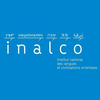
Overview
Founded in 1873, the Institut National des Langues et Civilisations Orientales (National Institute for Oriental Languages and Civilizations) is a non-profit public higher education institution located in the large metropolis of Paris (population range of over 5,000,000 inhabitants), Ile-de-France. Officially recognized by the Ministère de l’Enseignement supérieur et de la Recherche, France (Ministry of Higher Education and Research of France), Institut National des Langues et Civilisations Orientales (INALCO) is a medium-sized (uniRank enrollment range: 8,000-8,999 students) coeducational French higher education institution. Institut National des Langues et Civilisations Orientales (INALCO) offers courses and programs leading to officially recognized higher education degrees such as pre-bachelor's degrees (i.e. certificates, diplomas, associate or foundation), bachelor's degrees, master's degrees and doctorate degrees in several areas of study. See the uniRank degree levels and areas of study table below for further details. International students are welcome to apply for enrollment. INALCO also provides several academic and non-academic facilities and services to students including a library, study abroad and exchange programs, as well as administrative services.
University Snapshot
Control
![]() public
public
Entity
![]() non-profit
non-profit
Size
![]() medium-sized
medium-sized
Selectivity
![]() not reported
not reported
University Profile
| Name (English) | National Institute for Oriental Languages and Civilizations |
|---|---|
| Name | National Institute for Oriental Languages and Civilizations |
| Screenshot |

|
| Video Presentation |
n.a.; please submit an official National Institute for Oriental Languages and Civilizations general video presentation. |
Search Engine
Our search engine is powered by Google.
Campus Location
| Address | 65 rue des Grands Moulins Paris 75214 Ile-de-France France |
|---|---|
| +33 (0)1 81 70 10 14 | |
| +33 |





Social Media
Introduction
Social media can be a powerful tool for Universities to communicate with current students, alumni, faculty, staff and the wider community. But how can social media be important for prospective students? Read our article about the importance of Social Media for universities and prospective students to learn more.
Social Media
uniRank publishes brief reviews, rankings and metrics of some National Institute for Oriental Languages and Civilizations's social media channels as a starting point for comparison and an additional selection tool for potential applicants.
National Institute for Oriental Languages and Civilizations's Facebook page
National Institute for Oriental Languages and Civilizations's Twitter page
National Institute for Oriental Languages and Civilizations's YouTube channel
National Institute for Oriental Languages and Civilizations's Instagram page
National Institute for Oriental Languages and Civilizations's main LinkedIn profile
n.a.